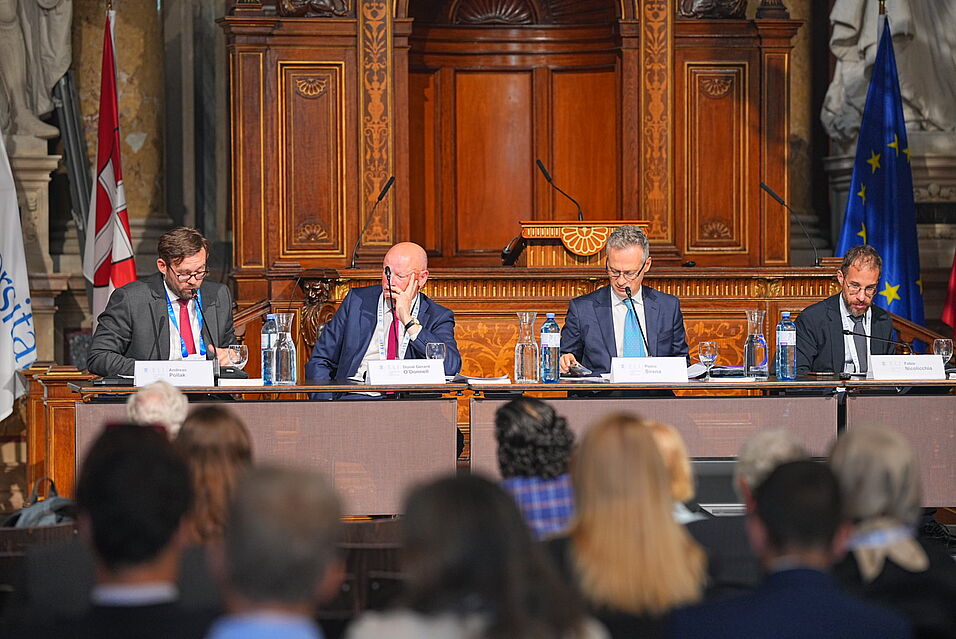The draft, presented by Fabio Nicolicchia, ELI Project Reporter and Professor at the University of Ferrara aims at a more coherent approach to corporate criminal liability across the EU, balancing the goals of accountability and competitiveness.
Panel experts explored the current landscape and future direction of corporate criminal liability in the European Union, emphasising the need for harmonised principles to ensure effective and consistent enforcement across Member States.
Donal Gerard O’Donnell, Chief Justice of Ireland, underlined the importance of addressing the avoidance of law through corporate mergers and restructuring. He further noted that this issue must be approached with care, as it raises broader challenges regarding the treatment of corporate entities. O’Donnell added that ‘while we focus on the criminal responsibility of corporate entities, this runs alongside the potential criminal liability of individuals, which remains a hugely significant part of the enforcement mechanism against companies.’
Andreas Pollak, Board Member of the European Criminal Bar Association (ECBA), welcomed the Model Rules’ approach to mergers and successor liability, noting that they appear to make clear that criminal liability cannot be avoided through corporate restructuring. He added that linking issues between corporate and individual liability may present greater complexity in some jurisdictions, particularly in common law systems, where civil and criminal concepts are often less interconnected than in civil law jurisdictions. Pollak also reflected on practical experiences under Austria’s Corporate Criminal Liability Act, where proceedings most often concern tax offences, negligent bodily injury on construction sites, and, in cross-border contexts, fraud. He suggested that future discussions should further clarify which types of offences can or should be directly attributed to a company.
Ingrid Breit, Deputy Head of Unit, Substantive Criminal Law Unit, Directorate-General for Justice and Consumers (DG JUST), also contributed to the discussion, highlighting the importance of consistent enforcement mechanisms and the alignment of national systems within the EU framework.
The exchange of views led to a lively discussion with participants, addressing challenges related to harmonisation, sanctions, and enforcement, as well as the potential of model rules to guide a unified European framework.
Prof Dr Nicolicchia emphasised the importance of shared principles and structures to ensure the effective implementation of corporate criminal liability throughout Europe.
The session was moderated by Prof Dr Pietro Sirena, ELI Treasurer and Dean of Bocconi University.

